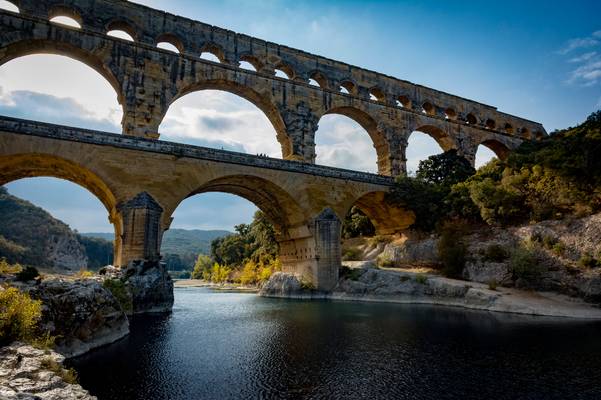
Redessan

by Clive Griffiths
The Pont du Gard is one of the archeaological wonders of France, and it is a designated World Heritage site.
The three tiered aqueduct crosses the Gardon River, and at 169 feet high it is the tallest of all the Roman elevated aqueducts.
It is worth paying the extra for a guided tour as that way you get to walk along the water channel at the very top of the aqueduct which is quite an eye opener.
The sheer precision of the engineering is quite staggering. The bridge is part of an aqueduct that was originally 50Km in length, ending in Nimes. The drop over that 50Km was only 12 metres, an average gradient of only 24cms per kilometre or a quarter of a millimetre per metre - that's almost perfectly flat and yet it was enough for the water to flow to Nimes by gravity.
Beyond the bridge, through the arches you may be able to make out the ominous build up of cloud that was to turn into a right old thunderstorm later in the evening.
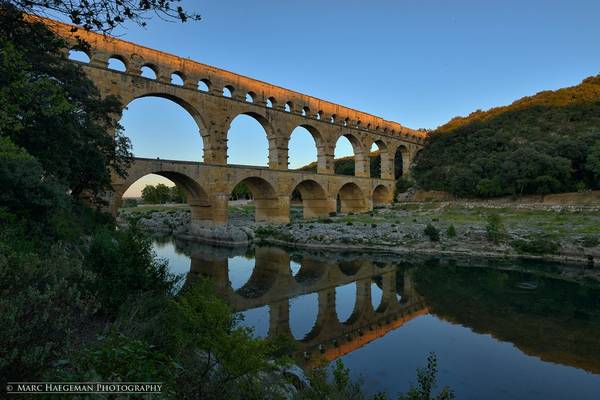
Last rays of sun on the Pont du Gard, the most striking remnant of the Roman aqueduct supplying ancient Nîmes with water. The Pont du Gard was built...
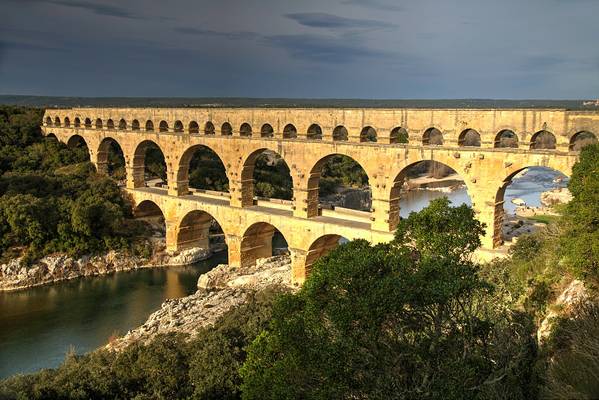
Amazing feat of classical engineering, still almost intact for all to see, worth it despite the exorbitant parking fee, I can imagine it's a human...
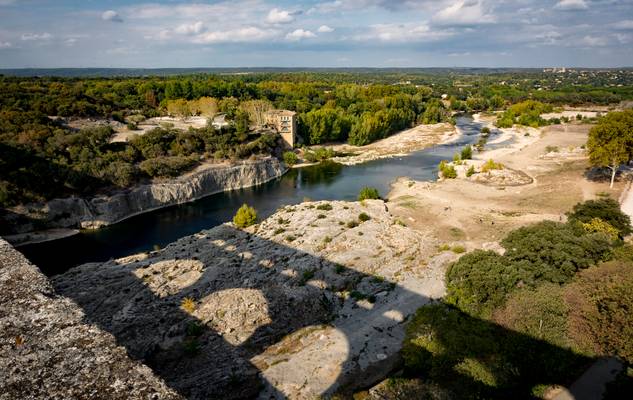
by Clive Griffiths
The view from the top of the Pont du Gard is well worth paying the extra for, especially when it gives you the chance to catch the distinctive shadow of the aqueduct spreading across the valley. The quarry for the aqueduct is just beyond the building in the centre of this shot - and this means they had to work out a way of floating the enormous stone blocks upstream to the building site. It is just staggering to consider the engineering quality and expertise that went into building this, a very long time before laser measurers and JCBs!
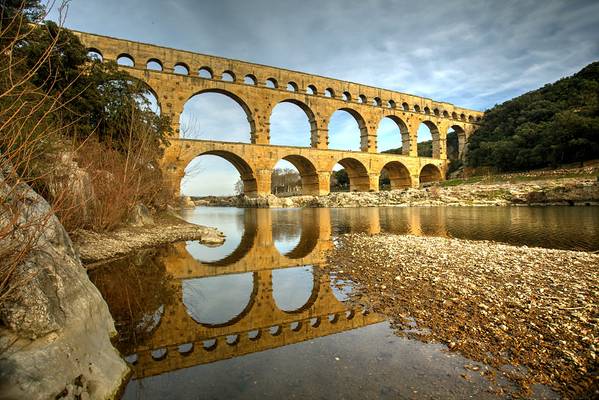
Amazing feat of classical engineering, still almost intact for all to see, worth it despite the exorbitant parking fee, I can imagine it's a human...
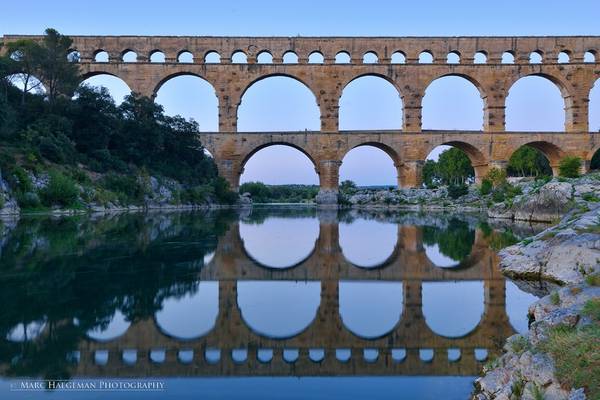
Pont du Gard. A UNESCO World Heritage Site since 1985 and 'Grand site de France®' since 2004. © 2014 Marc Haegeman. All Rights Reserved. *please do...
Thanks to all Phoide contributors to Redessan!
Most notably Clive Griffiths.
![Pont du Gard [FR]](https://cdn.phoide.com/Thumbs/26641829020.jpg)